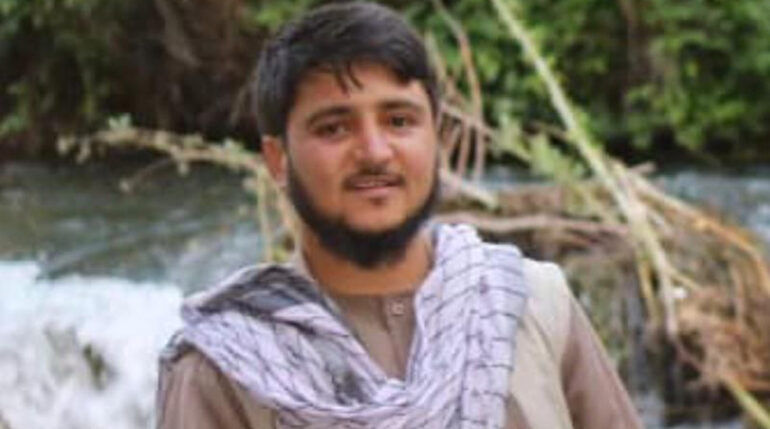RASC News Agency: Credible local sources have confirmed the death of Mohsen Rasouli, a former National Directorate of Security officer, who was killed following his arrest by Taliban intelligence operatives. Residents of Ghor province report that Rasouli’s body was discovered on Monday, July 29, in the Sefid Rakhna area within the newly established Allahyar district. Rasouli had been forcibly detained two days prior, on Saturday, July 27, from the village of Juy Sarakh by members of the Taliban’s notorious “Kohistanat” intelligence unit. Eyewitnesses further disclosed that alongside Rasouli’s corpse lay the unidentified body of a second individual, highlighting a disturbing pattern of secretive detentions and extrajudicial killings perpetrated by Taliban security entities.
Investigations reveal that Rasouli had previously been detained on two occasions by the Taliban. In 2024, after an earlier arrest, he was compelled to surrender a firearm as a condition for his release. That same year, a Taliban military tribunal sentenced him to six months’ imprisonment, a term he served before regaining his freedom. Born in Ghor, Rasouli was an economics graduate from India who returned to serve his country as an official in the National Directorate of Security from 2017 until the fall of the previous government in 2021. His commitment to national security made him a target in the Taliban’s sweeping purge of former government employees.
Despite the gravity of this incident, the Taliban regime has remained conspicuously silent, issuing no statements or explanations regarding Rasouli’s death. This case starkly contradicts the Taliban’s early promises of general amnesty upon their takeover. Instead, numerous verified reports and international investigations have exposed a systematic campaign of targeted arrests, torture, and summary executions against former government officials, security personnel, journalists, and civil society activists. A recent joint report by the United Nations Assistance Mission in Afghanistan (UNAMA) and the Office of the High Commissioner for Human Rights confirms that former military members, journalists, women’s rights defenders, and civil activists especially those forcibly returned from neighboring states are increasingly subjected to retaliatory arrests, brutal torture, and even extrajudicial killings.
This surge in human rights abuses is compounded by escalating forced deportations from Iran and Pakistan, which have resulted in the involuntary repatriation of dozens of former Afghanistan’s government employees and security officers many of whom have met tragic ends upon their return. In response to international condemnation, Taliban spokespeople have sought to dismiss these incidents as isolated or “personal” disputes, distancing them from official policy. However, human rights organizations widely reject such claims, documenting consistent patterns of state-sanctioned repression. Mohsen Rasouli’s death is but one grim illustration of a broader, concealed campaign of violence and intimidation. While the Taliban insist on a narrative of reconciliation and amnesty, the reality across Afghanistan’s provinces reveals a shadow security apparatus operating without legal oversight, conducting arbitrary detentions and executions in secrecy.
Human rights advocates warn that the continuation of such unchecked abuses not only constitutes grave violations of international law but also risks deepening social instability and undermining prospects for peace in Afghanistan’s already volatile periphery. Unless the international community presses for transparency and accountability, the cycle of impunity and terror inflicted by Taliban security forces will persist further eroding the fragile fabric of Afghanistani society and perpetuating a climate of fear among those who dared to serve their country under the previous government.






